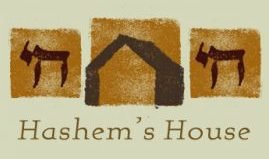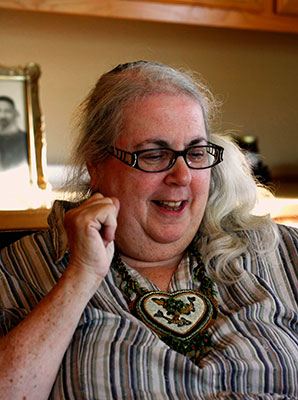In addition to being Rebba Raine-Chief Rabbi and CEO at HaShem’s House International, here in Austin, I am also President of TSA (Tejas Storyteller’s Association) for the state of Texas, as well as the vice-president of my local storytelling guild here in Austin. As such, and during the 50 years I taught English, I have always had a love of story. It also is no secret that I enjoy watching public television. I am a sustaining member for KLRU in Austin with good reason. Watching it brings the world to me, right here in my recliner, in front of the television. If I am going to watch TV, I want it to be enriching as well as enjoyable.
I have written here, on other occasions, about storytelling on PBS. Now I have found yet another source of the story. I was watching Joe Lamp’l, host of KLRU’s “Growing a Greener World,” a show dedicated to growing and raising all manner of sustainable foodstuff. Joe often talks about programs across the country that add to our environmental sustainability. And this past weekend was no different, except that Joe was emphasizing the nature of the story and how it brings us to new insights and new information.
The focus of his program and the story he wanted us to hear, was about Jason Brown, ex-pro football player and now inspired farmer at First Fruits Farm in North Carolina. Brown, making millions as a pro-ball star, saw a farm one day and heard G-d within him, say, “this is what you are to be doing.” Brown and his wife, both knowing nothing about farming, decided to buy the farmland that inspired them. They named it First Fruit Farms because they give away the first 10 % of their harvests instead of leaving the last 10% for the hungry, the widow, the orphan-a biblical reference.
Teaching himself to farm via the internet, UTUBE and other print media, Brown has gone from total novice to seasoned farmer, giving away much of his harvests to feed the hungry. And as he walked Joe through the history and the geography of the farm he told amazing stories of miracles that have happened and have sustained his dream of following that which he feels he was ordained to do.
The stories are compelling. The stories are the vehicle by which Brown teaches not just farming, but sustaining one’s faith in something greater than oneself. For me, the stories were like manna from heaven. They brought my clergy and my storytelling back to me in one package, or as Brown would put it, “in one field”.
Look him up. Hear his stories. And remember, as Joe Lamp’l always reminds us, stories are all around us. Put another way by Muriel Ruksmeyer, American storyteller, “the world is made up of stories, not atoms.”


